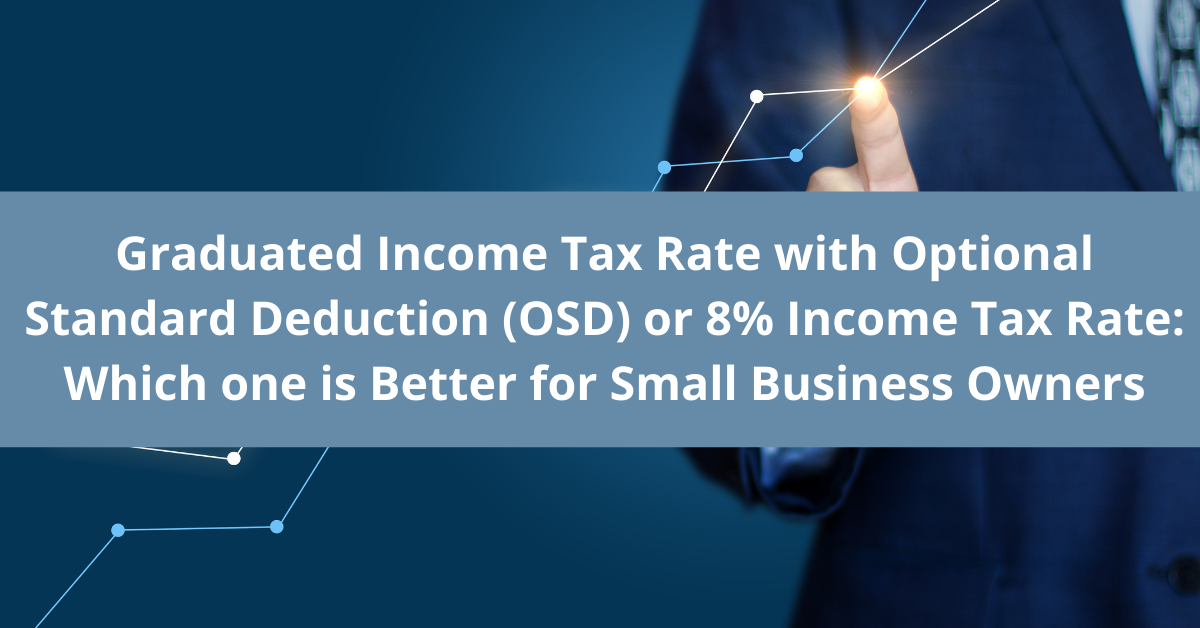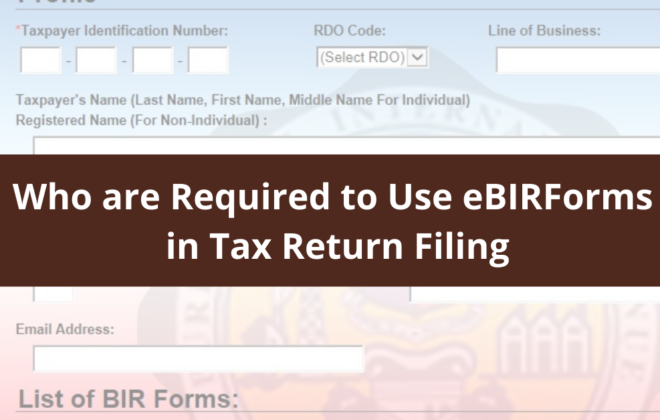Graduated Income Tax Rate with Optional Standard Deduction (OSD) or 8% Income Tax Rate: Which one is Better for Small Business Owners
The Bureau of Internal Revenue (BIR) allows business owners and professionals to choose either the Graduated Tax Rates with OSD or the 8% Tax Rate in computing for their income tax.
This simplified way of tax computation makes filing and paying taxes easy. Now, small business owners who may not be knowledgeable in our tax system can channel their efforts to grow the business rather than worry about erroneous tax payments.
What is Optional Standard Deduction (OSD)?
Under the OSD, taxpayers are given the option to deduct 40% of gross sales/receipts or gross income as business expenses in lieu of the itemized deduction to arrive at the taxable income.
Features:
- Taxpayers are no longer required to substantiate the 40% business expense but needed to keep records of actual business expenses for BIR audit purposes;
- Account Information Return (AIF) or audited financial statements are no longer needed;
- OSD is ideal for businesses with minimum business expenses as you can get a higher deduction (40% of Gross Income or Gross Sales) as compared to the actual business expense;
- The 60% of the Gross Income or Gross Sales are automatically taxed, whether you made a profit or not for the taxable year. This may result in paying more if your expenses will turn out to be greater than your revenue.
What is the 8% income tax rate?
In the 8% Income Tax Rate, all you need to do is account for your total gross sales/receipts or gross income, deduct the non-taxable amount of P250,000.00 and multiply the difference by 8% to get the tax due.
Features:
- Taxpayers whose gross income/receipts does not exceed P3,000,000.00 may avail of this income deduction scheme;
- Taxpayers should signify their intention to avail of the 8% Income Tax Rate by submitting BIR Form 1905 (Application for Registration Information Update;
- The filing and paying of Percentage Tax or Income Tax is not required, thus reducing the taxpayer’s administrative works;
- Business-related expenses are not deducted to compute for the taxable income;
- For a business with higher operating expenses, the 8% Income Tax Rate may yield a higher tax payable.
Which one is right for your business?
We have to consider many factors in choosing the best income deduction scheme for your business. As a general principle, it is conservative to select the option that will give you the highest income deduction and allow you to pay the least amount of income tax.
Considering the unique characteristics of businesses, it isn’t easy to provide business advice without consulting an expert. We, therefore, recommend that you get the professional advice of a tax practitioner or a CPA to assure that the expected benefits of an option would turn out to be an advantage indeed.
We at DJKA Business Service Inc. offer professional advice on tax compliance for your business. For inquiries and consultation, email us at info@djkaaccounting.com
Recent Posts
- New Features and Functionalities of the Online Registration and Update System (ORUS)
- A Comprehensive Guide to Taxation for Freelancers in the Philippines
- New Tax Laws in 2024: What Changes Filipino Taxpayers Should Prepare For
- How to Avoid Common Tax Mistakes in 2024
- Tax Deductions and Benefits Often Overlooked by Filipino Taxpayers





